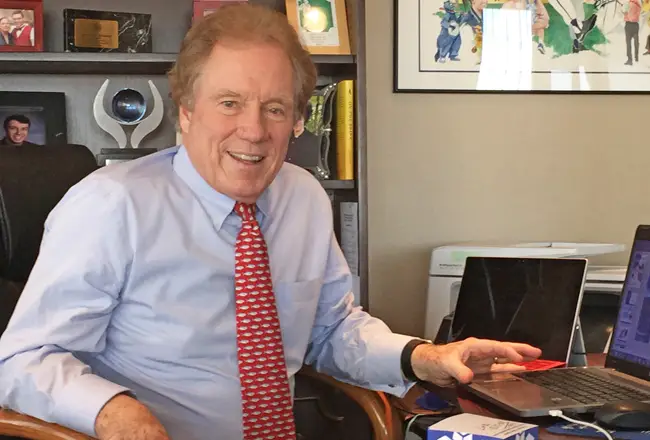Finding the right person to fill a job is always something of a human resources challenge, but recruiting a new CEO to run an organization can be especially challenging. Principals at executive search firms agree that when it comes to recruiting an executive for a senior management position, the CEO”™s job is the most demanding to fill.
“I don”™t know if there is a universal qualification,” said Lynda S. Wirth, president of Schrier Wirth Executive Search in White Plains. “Everyone says that they want good communications and technical skills, but that varies company by company. And everyone wants integrity and someone that speaks well.”
 But no one wants controversy, and changing sociopolitical concerns have reshaped the CEO search process. Today”™s CEO recruitment efforts are being tightened to ensure the new occupant of the C-suite does not come with unwelcome baggage that could create deleterious publicity.
But no one wants controversy, and changing sociopolitical concerns have reshaped the CEO search process. Today”™s CEO recruitment efforts are being tightened to ensure the new occupant of the C-suite does not come with unwelcome baggage that could create deleterious publicity.
“The MeToo movement is throwing a curveball that is changing the level of due diligence in executive recruitment,” said Krista Bradford, CEO of The Good Search LLC in Westport. “Checking someone”™s background in relation to the sexual harassment movement applies to both men and women.”
“Personal behavior is more greatly scrutinized,” said Jason Witty, vice president for Robert Half Finance & Accounting in Stamford. “Not only professional behavior, but also personal behavior is hugely important. Gone are the days of just running a criminal background check. Today, recruiters need to get as much information as they can to know all about the individual.”
Matthew J. Schwartz, president of MJS Executive Search LLC in Scarsdale, said due diligence on potential CEOs now requires a deeper investigative search. “We need to go beyond the canned references that a candidate presents,” he said. “We have to ask questions of previous bosses, peers and subordinates, if possible, and we need to be asking tough questions. Is there something to be concerned about with this candidate? Is there anything else we should know?”
Diversity in executive hiring is another consideration in the CEO search process. Bradford at The Good Search said that while many companies stress the importance of diversity in hiring, that concept often doesn”™t easily permeate an organization”™s highest level.
“There is a great deal of unconscious bias that we all bring to the table,” she said. “That kind of leadership needs to come from the top, and most boards are not diverse. It depends if a nondiverse board is motivated to make itself into a diverse board.”
Having corporate leadership consisting solely of white men, said Schwartz, is out of touch with today”™s inclusion-oriented society. “It is very important to have an inclusive slate of candidates for a CEO”™s position that will reflect who the company”™s customers and business partners are,” he said. “Women are 50 percent of the workforce, yet the number of women in C-suite positions is so small.”
The strengthening economy presents its own challenges in the CEO search process is. As more companies earn greater profits, incentives to encourage executives to switch from one job to another must become more generous.
“In this economy, many are finding it is harder to make a placement,” said Wirth. “Companies often have to exceed their budget to get someone. No one is going for equal money.”
And keeping candidates”™ names under wraps during the CEO search is another concern. “It is not uncommon for candidates for a CEO position to pull out if their name is not kept in strictest confidence,” said Witty.
A candidate”™s savviness with evolving technology has become a key element of CEO recruitment. Bradford noted that some companies are looking beyond their industry for candidates with proven track records in adapting new technologies to grow the bottom line.
“Taking candidates from an adjacent industry makes strategic sense,” she said. “A legacy or older industry may have blind spots, and they can be sitting ducks for a tech spin on an old industry that will result in someone having their lunch. A classic example of that is the retail industry. Today, you need somebody from the outside to bring a strategic mindset, someone who is pretty adept at understanding how technology can disrupt an industry.”
Michael Cooke, partner and executive vice president in the Stamford office of The Execu|Search Group, said publicly traded companies sometimes reach outside of their industry for chief executives with strong Wall Street experience. He cited Anthony Noto”™s career path from a managing director at Goldman Sachs to his new role as CEO at SoFi and Ruth Porat”™s move from CFO and executive vice president of Morgan Stanley to CFO of Google”™s parent company Alphabet as prominent examples of this C-suite trend.
“Neither one was embedded in the tech industry,” Cooke said of those CEOs. “In their cases, the companies wanted someone that understood and worked with Wall Street over someone in the tech world.”





















Comments 1